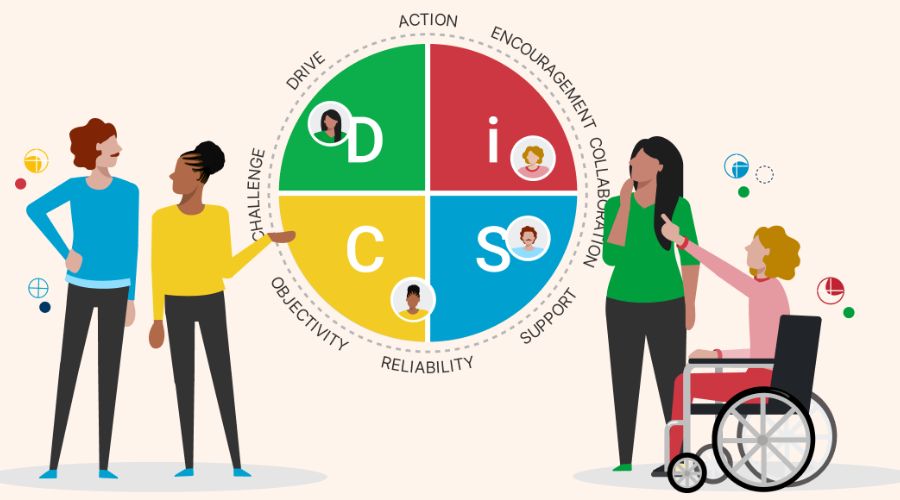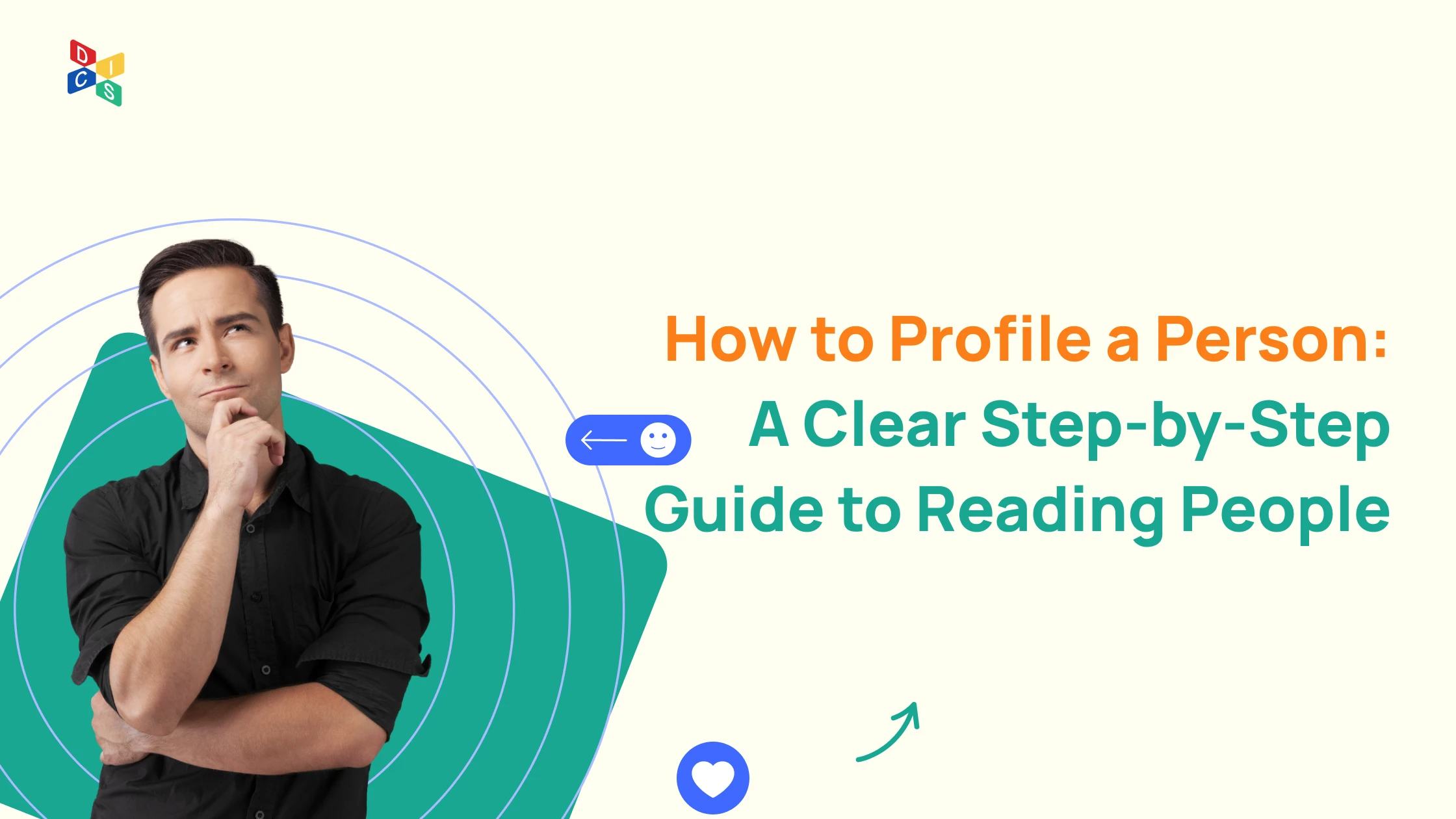Table of content
Best Personality Types For Accountant According To DISC Personality Test
Discover the best personality type for an accountant and the traits that matter. See how the right mindset can shape your accounting career.
Choosing the right personality type for accountant is just as important as mastering technical skills. In today’s fast-paced financial world, accountants are expected to be precise, dependable, and adaptable. Understanding your natural strengths through personality insights can help you determine if you are truly suited for this career path. By identifying how your traits align with the demands of accounting, you gain clarity, boost confidence, and set yourself up for long-term success in the profession.
Why Personality Matters in Accounting Careers?
The accounting profession is experiencing rapid transformation due to automation, regulatory shifts, and evolving client expectations. While technical skills remain the foundation, surveys such as the AICPA 2023 Trends Report and the Robert Half Accounting & Finance Salary Guide show that employers increasingly prioritize soft skills like adaptability, communication, and ethical judgment.
Accountants are now expected to provide insight, handle complexity, and build lasting client relationships rather than focus solely on bookkeeping.
Are Personality Traits Really Necessary?
Despite these changes, debate continues within the industry. Some argue that precision and compliance are the true measures of accounting success. From this perspective, accuracy in numbers outweighs interpersonal qualities. A recurring question is: Do accountants truly need personality traits if their primary role is to ensure reliable financial reporting?
This viewpoint reflects a longstanding belief that technical skills define the role, while soft skills are optional. However, global research increasingly challenges this notion, suggesting that ignoring personality considerations undermines long-term performance.
Why Personality Traits Matter in Accounting
Evidence shows that personality qualities significantly enhance professional effectiveness. The International Federation of Accountants (IFAC) stresses that traits such as integrity and accountability are as critical as technical knowledge. An accountant with strong ethics not only ensures compliance but also safeguards public trust.
Adaptability is equally important. As new technologies reshape workflows, accountants must learn and apply tools quickly. Clear communication is another essential trait. Complex financial data is only valuable if it can be explained in a way that managers, clients, or stakeholders can understand. Effective communicators minimize misinterpretation, making personality traits inseparable from technical expertise.
Benefits of Strong Personality Traits vs Risks Without Them
- When personality is present: Accountants demonstrate discipline under tight deadlines, adapt to new technologies, and maintain credibility. These traits support collaboration, reduce communication errors, and position accountants as trusted advisors rather than mere number crunchers.
- When personality is absent: Professionals may excel in technical accuracy but risk being viewed as rigid, poor communicators, or resistant to change. Over time, this damages teamwork, weakens client confidence, and limits career progression within the accounting profession.
Aligning Strengths with Career Success
The discussion around what is the best personality type for accounting highlights a key truth: technical precision alone cannot ensure success. The most effective accountants combine discipline, honesty, and adaptability with interpersonal strengths that build lasting partnerships.
By aligning their natural personality with the demands of the profession, aspiring accountants can thrive in both education and practice. Employers, in turn, benefit from professionals who are not only accurate but also trusted advisors who guide businesses toward stability and growth.

Essential Traits of a Good Accountant
Essential traits of a good accountant are the personal qualities and professional values that ensure accuracy, trust, and ethical practice. Beyond technical skills, these traits - such as detail-orientation, integrity, and communication - form the foundation of lasting success in accounting.
The following qualities of a good accountant represent the foundation of an effective accounting career.
1. Detail-Oriented and Organized
A strong personality type is often defined by meticulous attention to detail. Accuracy is critical because even a minor oversight can cause significant financial consequences. Being organized helps accountants manage complex records efficiently, ensuring that data is easy to retrieve and verify.
This combination of detail-orientation and organizational skill allows accountants to identify discrepancies quickly and maintain credibility in their work.
2. Integrity and Professional Ethics
Trustworthiness is a cornerstone in evaluating the right personality type for accountant. Since accountants deal with sensitive financial information, employers and clients must have confidence in their honesty and ethical standards.
Integrity is not just about following rules but about maintaining transparency and protecting the interests of those who rely on accurate financial reporting. This commitment to ethics is what separates an average accountant from an exceptional one.

3. Analytical and Problem-Solving Skills
Another defining aspect of the type for an accountant is the ability to analyze numbers and solve problems effectively. Beyond preparing reports, accountants must evaluate data trends, forecast risks, and provide solutions that support business stability.
Strong analytical thinking enables them to interpret complex information, while problem-solving skills help them create strategies that reduce financial risks and improve efficiency. This is often what people mean when they ask what type of person is suited to accounting, since the role demands both precision and strategic thinking.
4. Communication and Interpersonal Skills
Although numbers are central, a successful personality type for accountant also requires strong communication. Accountants frequently explain financial insights to clients, colleagues, and business leaders who may not understand technical terminology. Clear and effective communication ensures that decisions are informed by accurate interpretation. Interpersonal skills also help accountants collaborate with teams, build trust, and maintain professional relationships that are essential for long-term career success.
5. Key Personal and Professional Qualities of Accountants
Beyond the core skills above, many other qualities contribute to professional success in accounting. Research shows that certain personality traits for an accountant often align well with the demands of the field.
- Creativity: Innovative thinking helps accountants find practical solutions within strict regulations.
- Strong Work Ethic: Accounting often requires long hours, especially during tax season, making discipline essential.
- Adaptability: Regulations and technology evolve quickly; successful accountants adapt without losing efficiency.
- Teamwork: Accountants frequently collaborate with other departments, so being a team player is important.
- Trustworthiness: Handling confidential data requires absolute reliability and professional responsibility.
- Time Management: Meeting deadlines during busy seasons depends on effective scheduling skills.
Explore how different DISC leadership styles shape team performance!
Personality Types That Match Accounting Careers
Choosing the right personality type for accountant is not about finding one perfect match. No single DISC profile guarantees success in a specific career path. Instead, each style brings unique strengths that can be highly effective in accounting roles.
Among the DISC spectrum, certain types demonstrate qualities that naturally align with the precision, structure, and consistency required in financial management. Below are the profiles most often associated with strong performance in accounting positions.

High S Type
Individuals with a high Steadiness orientation often excel in accounting environments because they value stability and reliability. Their natural patience allows them to handle repetitive financial tasks with care and consistency.
- Strong preference for routine and structured workflows
- High attention to detail, ensuring accuracy in data entry and reporting
- Dependable and supportive team players, contributing to steady office dynamics
- Effective at maintaining long-term client or project records without overlooking key details
This makes the personality of an accountant closely connected to the S type, especially when precision and trustworthiness are critical.
High C Type
High Compliaaince personalities are frequently viewed as the most suitable for accounting careers. Their analytical mindset and methodical approach make them adept at solving problems that require logic and accuracy.
- Naturally cautious, reducing the likelihood of errors in complex calculations
- Strong organizational ability, which supports auditing, compliance, and documentation
- Value clear standards, rules, and procedures - aligning with industry regulations
- Comfortable working independently when tasks demand concentration and depth
Given these attributes, the C style is often highlighted as the personality type for accountant that aligns best with roles requiring precision and adherence to regulations.
SC Type
A blend of Steadiness and Compliance, the SC profile brings together the strengths of both patience and accuracy. This combination provides a balanced foundation for accounting responsibilities, especially in collaborative yet detail-oriented environments.
- Dependable under pressure, maintaining accuracy during peak reporting cycles
- Balanced interpersonal approach, ensuring teamwork while keeping focus on technical accuracy
- Strong sense of responsibility, fostering trust in financial accountability
- Ability to combine systematic work habits with calm, consistent communication
The SC mix is often described as a practical personality traits for an accountant, reflecting qualities that support both long-term reliability and technical excellence.
Discover the best career paths for each DISC personality type!
How to Identify Your Personality Type for Accounting
Taking a DISC assessment is one of the most effective ways to identify the personality type for accountant roles. The DISC model evaluates behavioral tendencies in workplace settings, helping individuals understand whether their natural style aligns with tasks such as accuracy, compliance, and structured decision-making.
For accounting professionals, this clarity is essential to build confidence in career choices and workplace performance.

Why Use DISC to Identify Personality Types in Accounting Careers
Choosing the right personality type for accountant is not only about technical knowledge but also about how an individual manages precision, deadlines, and collaboration.
By completing a DISC test, aspiring accountants gain insights into traits such as attention to detail, reliability, and consistency - qualities highly valued in financial reporting and auditing. This self-awareness can guide students, job seekers, and professionals toward roles that match their strengths and reduce the risk of career misalignment.
Advantages of DISC Compared to Other Personality Assessments
Unlike many generic personality tools, the DISC framework is specifically designed for workplace effectiveness. It focuses on practical behaviors rather than abstract traits, making it highly relevant for office-based professions like accounting.
For someone exploring the best personality type for accountant, DISC highlights how traits such as steadiness or conscientiousness contribute to long-term success. This makes it more actionable than broader tests that may not address the realities of financial roles.
To discover your ideal fit, take the official DISC test today and see how your strengths align with an accounting career. Start your assessment here: Take the DISC Personality Test.
Learn why workplace personality differences influence collaboration and conflict!
Conclusion
Understanding the right personality type for accountant is the foundation for building a rewarding and sustainable career in finance. By recognizing your behavioral strengths and aligning them with the structured, detail-oriented nature of accounting, you can maximize both performance and job satisfaction. Whether you are a student exploring career options or a professional seeking growth, identifying your fit ensures you make confident choices.
FAQs
1. What is the ideal personality type for accountant female professionals?
The ideal personality type for accountant female professionals is similar to male counterparts, but may emphasize additional traits like adaptability and empathy in workplace collaboration. Women in accounting often balance technical precision with strong interpersonal skills, which helps in leadership roles and client communication.
High “C” for accuracy, combined with “S” for reliability, ensures strong performance. When paired with relational skills, this personality mix allows female accountants to excel in both technical and management positions.
2. What is the best personality type for an accountant?
The best personality type for accountant roles is usually associated with conscientiousness and steadiness. Accountants need to be detail-oriented, reliable, and consistent in order to manage numbers accurately and comply with strict regulations.
DISC profiles that lean toward “C” (Compliance) and “S” (Steadiness) are highly effective because they reflect precision, patience, and responsibility. These qualities help professionals thrive in auditing, tax preparation, and financial reporting, ensuring long-term career success.
3. How can knowing your personality type improve accounting performance?
Understanding your personality type for accountant roles helps align personal strengths with job tasks. For example, a conscientious personality thrives on accuracy, while a steady type ensures consistency in long-term projects. By identifying these tendencies, accountants can optimize workflows, reduce stress, and improve collaboration with colleagues.
Personality awareness also supports professional development, guiding individuals toward roles that fit best, such as auditing, tax advisory, or management accounting. Ultimately, self-knowledge fosters greater efficiency and job satisfaction in the profession.


Don't Let Your Potential Stay Hidden!
Take the DISC test today and discover your unique 'YOU', with deep insights into your true personality and potential.

Represents your instinctive behaviors and desires.
Shows the behavioral tendencies you think you should exhibit in specific situations.
Related articles
You may also be interested in
 Self ExplorationDec 17, 2025
Self ExplorationDec 17, 2025What Are the Dynamics of a Team? Understanding How Teams Really Work
Discover what are the dynamics of a team and how they impact team performance. Learn how communication, roles & personality differences boost collaboration.
 Self ExplorationDec 16, 2025
Self ExplorationDec 16, 2025100+ Team Building Questions to Build Trust & Collaboration at Work
Explore effective team building questions to boost connection, trust, and collaboration in your team. Engage everyone and strengthen your team's dynamics today!
 Self ExplorationDec 10, 2025
Self ExplorationDec 10, 2025How to Profile a Person: A Clear Step-by-Step Guide to Reading People
Learn how to profile a person step-by-step. Master practical techniques to read behavior, understand motives, and identify personality patterns accurately.
